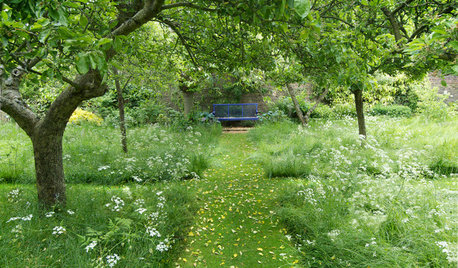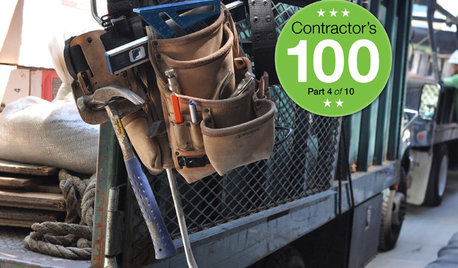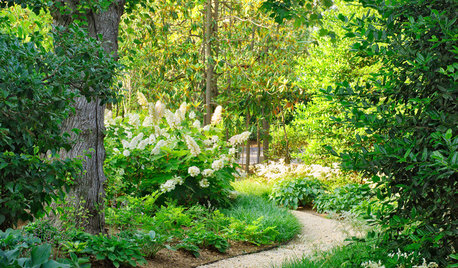Speaking of crown gall
Patty W. zone 5a Illinois
7 years ago
Featured Answer
Sort by:Oldest
Comments (45)
hoovb zone 9 sunset 23
7 years agoSheila z8a Rogue Valley OR
7 years agoRelated Discussions
Crown Gall Questions
Comments (20)The galls are actually the plant's response to the bacterium's presence in the past. Whether it continues to exist in your soil or not, I don't know. It appears very common and wide spread in the desert south west, perhaps other areas too. Supposedly, what is required is a wound at or below the soil level to permit the bacteria entry into the plant. Therefore, it would seem unwise to prune roots when planting or to influence a plant's performance. It would also seem very unwise to "cultivate" your garden soil anywhere there may be rose feeder roots as those "wounds" could, potentially permit any bacteria entry into the plant. Similarly, "companion plantings" might also be potentially damaging, particularly in established rose beds. Digging a hole, of any size, could result in "wounded" rose roots, providing entry to possible infection by the bacterium. And, what about gopher vole or mole damage to the roots? Moles may not eat the roots, but they do dig through them and can cause "wounds" to root tissue. There are instructions all over suggesting you remove and replace the soil from a spot where a galled plant has been removed, though if it's possible the bacterium exists in your soil, what benefit would there be to replacing that soil in that spot? And, could the situation be similar to that of RMV, where, though you've never SEEN symptoms, the causal agent has been present for a long time prior to the expression of symptoms? I can't give you absolute answers, but I do raise these other questions to possibly point out that, other than using something like Galltrol and insuring there will never be any damage to the rose tissues where they may become infected, there really may not be much, if anything, you can do to prevent galls....See MoreIs this crown gall? What is the next step.
Comments (4)thank you for responding. The Rose is performing really well. I think the round shape of it threw me off. Its like a squashed tennis ball. none Of my other roses look like this and being 2020 I assumed the worst....See MoreIs this crown gall?
Comments (2)Yup, I agree with Seil. I just dealt with this on a rose I was attempting to transplant. I cut into the growth and it looked like cauliflower inside - a whitish/cream/yellow color. I removed the rose and the soil and will leave the space vacant or plant something else in it's spot. Doesn't feel good especially if a rose that you love that's not currently available to replace. Sorry!...See MoreIs this crown gall?
Comments (9)If your winds are so strong they're snapping canes off from the base even without the weight of leaves and flowers, you should bury your roses more deeply. I once had a rose do the same, snap off right at the graft on the last remaining cane I had. Killed the rose, of course. I wish I have buried it deeper to protect it from our strong winds. I don't know anything about crown gall though, hopefully someone with more trained eyes can help with that....See MorePatty W. zone 5a Illinois
7 years agoSheila z8a Rogue Valley OR
7 years agoUser
7 years agoratdogheads z5b NH
7 years agolast modified: 7 years agoPatty W. zone 5a Illinois
7 years agotowandaaz
7 years agoPatty W. zone 5a Illinois
7 years agoLisa Adams
7 years agoPatty W. zone 5a Illinois
7 years agochris2486
7 years agoMoses, Pittsburgh, W. PA., zone 5/6, USA
7 years agoPatty W. zone 5a Illinois
7 years agoUser
7 years agorifis (zone 6b-7a NJ)
7 years agoMoses, Pittsburgh, W. PA., zone 5/6, USA
7 years agolast modified: 7 years agojim1961 / Central Pennsylvania / Zone 6
7 years agoPatty W. zone 5a Illinois
7 years agoEmbothrium
7 years agorifis (zone 6b-7a NJ)
7 years agoPatty W. zone 5a Illinois
7 years agoPatty W. zone 5a Illinois
7 years agorifis (zone 6b-7a NJ)
7 years agostillanntn6b
7 years agoPatty W. zone 5a Illinois
7 years agolast modified: 7 years agochris2486
7 years agoSheila z8a Rogue Valley OR
7 years agolast modified: 7 years agoPatty W. zone 5a Illinois
7 years agoPatty W. zone 5a Illinois
7 years agochris2486
7 years agorifis (zone 6b-7a NJ)
7 years agoPatty W. zone 5a Illinois
7 years agoPatty W. zone 5a Illinois
7 years agoPatty W. zone 5a Illinois
7 years agolast modified: 7 years agoPatty W. zone 5a Illinois
7 years agochris2486
7 years agoPatty W. zone 5a Illinois
7 years agoPatty W. zone 5a Illinois
7 years agoMoses, Pittsburgh, W. PA., zone 5/6, USA
7 years agolast modified: 7 years agochris2486
7 years ago
Related Stories

REMODELING GUIDESArchitect's Toolbox: Tell a Home's Story With Trim
Trim speaks worlds about your home's style. Make sure yours is speaking the right language by understanding the 5 basic styles
Full Story
REMODELING GUIDESHow to Size Interior Trim for a Finished Look
There's an art to striking an appealing balance of sizes for baseboards, crown moldings and other millwork. An architect shares his secrets
Full Story
KITCHEN DESIGN9 Molding Types to Raise the Bar on Your Kitchen Cabinetry
Customize your kitchen cabinets the affordable way with crown, edge or other kinds of molding
Full Story
KITCHEN DESIGNDream Spaces: 12 Beautiful White Kitchens
Snowy cabinets and walls speak to a certain elegance, while marble counters whisper of luxury
Full Story
GROUND COVERSGive Your Lawn a Taste of the Wild
Consider the joys of an irregularly trimmed meadow lawn: It’s ecofriendly, visually interesting and still good for romping
Full Story
REMODELING GUIDESContractor Tips: What Your Contractor Really Means
Translate your contractor's lingo to get the communication on your home project right
Full Story
WINDOW TREATMENTSCurtain Speech
Learn the basic terms for parts and styles of draperies and curtains to get the look you want
Full Story
LANDSCAPE DESIGNUnwind in Your Own Private Garden Escape
When the world is getting on your last nerve, an outdoor refuge can soothe and nurture. Here's how to design a garden with relaxing in mind
Full Story
PRODUCT PICKSGuest Picks: Hankering for Houndstooth
This traditional pattern takes on an edge worth yearning for when it's reimagined in punchy color combinations and large-scale prints
Full StorySponsored
Central Ohio's Trusted Home Remodeler Specializing in Kitchens & Baths





fig_insanity Z7b E TN